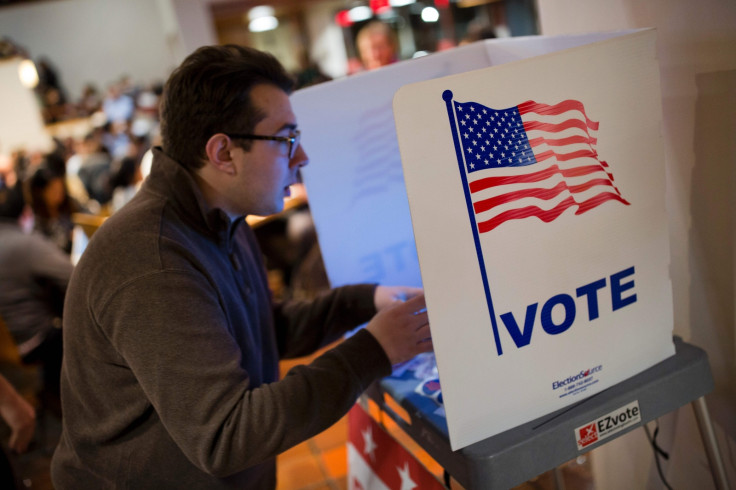Electoral College voters file federal court challenge to convince others not to vote for Trump
Colorado Democratic electors join cast of Electoral College members who see Trump as 'unfit for office'.

Two electors in Colorado who are supposed to cast their vote for Hillary Clinton in the Electoral College vote this month have filed a federal court case to overturn state law so they don't have to.
Their aim is to convince Republican electors in other states that President-elect Donald Trump is unfit for office and come to a consensus to elect a third candidate Republican for president.
The paperwork for the case was filed Tuesday (6 December) by a lawyer for Democratic electors Polly Baca, former chair of the Democratic Caucus of the Colorado House of Representatives, and Robert Nemanich.
It argues that state law that requires them to vote for Clinton in the Electoral College ballot violates the US Constitution and their First Amendment right to freedom of speech.
On 19 December designated electors like Nemanich and Baca are supposed to meet across America in state capitols to cast the ballots that will finalise the election and hand power to Trump. Voters in the US do not directly elect the president but instead vote for an 'elector' in the Electoral College who has announced in advance how they plan to vote. Each state is given a number of these votes based on its population.
Many state laws prohibit electors, be they Republican or Democrat, from voting for a candidate that did not win the popular vote in their state. Clinton won that vote in Colorado by more than 136,000 votes. Baca and Nemanich are seeking to overturn the state law so that they can convince Republican and Democrat electors in other states to vote for a third candidate Republican and cast their ballots together.
"Donald Trump is unfit for the presidency," Nemanich told a local Colorado Fox News broadcaster in an interview Tuesday. "That does not come just from my personal judgement, it comes from conversations I've had with Republicans, independents, Democrats."
Democrat Hillary Clinton has gained more than 2.6 million ballots more than Trump in the popular vote in the US, but gaining at least 270 of the 538 total electoral votes secures the presidency. Donald Trump gained 306 of these votes to Clinton's 232.
Nemanich called Trump "dangerous" to America's representative government. He and Baca are part of a wider movement among Democratic members of the Electoral College to try to convince 38 Republican electors to vote for someone other than Trump. They want this candidate to be a traditional Republican like Mitt Romney or Ohio's Republican Governor John Kasich.
Trump's win has proved contentious among Republican electors as well. In late November a Republican elector in Texas resigned from his role because he could not "in good conscience vote for Donald Trump." On Monday (5 December) another Texas Republican, Christopher Suprun, wrote in the New York Times that Trump "shows daily he is not qualified for the office" of president and that he will not cast his Electoral College ballot for him.
In the Colorado court case the electors said Trump is "unfit for office" due to, among others things, "his belief – against all facts – that climate change and global warming are a 'hoax'" and his "promises to discriminate against Muslims and Latinos."
Republican Secretary of State Wayne Williams rebuffed the case in a statement Tuesday. "Instead of honoring the will of the Coloradans who voted for them," he wrote, "these two faithless electors seek to conspire with electors from other states to elect a president who did not receive a single vote in November."
NOTE:
- This article was corrected to state that Colorado's Electoral College electors were not supposed to vote for President-elect Trump because the state voted for Clinton.
© Copyright IBTimes 2025. All rights reserved.






















